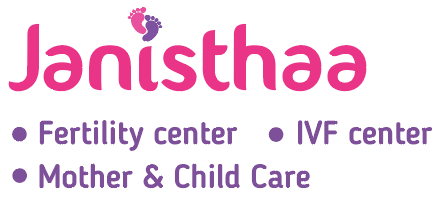
Infertility is a common issue among couples who are trying to conceive. There are a lot of social stigmas attached to it, making it even harder for them. However, it is not incurable or uncommon, which makes the stigma unreasonable. With awareness of the remedies and the causes, we can disband the unwanted stigma around it.
IVF is an effective remedy when it comes to infertility. IVF or In-Vitro Fertilization is an assisted reproductive technique that helps couples who are struggling with infertility due to many reasons successfully become parents.
What are the different causes of Infertility?
There are many different causes of infertility. In men, infertility can be caused by various factors, including low sperm count, abnormal sperm function, or blockages in the reproductive tract. In women, infertility can be caused by problems with the ovaries, such as polycystic ovary syndrome (PCOS), or with the fallopian tubes, such as blockages or scarring. Other possible causes of infertility include hormonal imbalances, uterine fibroids, and certain medical conditions such as diabetes and obesity. Stress, age, and certain lifestyle factors, such as smoking and alcohol consumption, can also contribute to infertility.
Let us look at how IVF works in the case of Infertility
The IVF process consists of five steps planned carefully and executed with precision.
1. Ovarian Stimulation for superovulation
This is the first step of IVF, where the ovary is stimulated to produce multiple eggs using certain medications. These drugs contain a hormone called Follicle Stimulating Hormone or FSH. This hormone leads to the production of more than one egg in a month, which increases the chance of success of the IVF treatment. Ovaries and hormone levels are regularly monitored using blood tests and ultrasound scans.
2. Egg Retrieval
This is the process where the eggs from the ovary are taken out. But a hormone injection is administered a day or two before this is done to help your eggs mature quickly. The eggs are retrieved through a small surgical procedure called follicular aspiration. It is an outpatient procedure under local anaesthesia to minimise discomfort. It is done with the help of an ultrasound guide and a thin needle to suck out the eggs. The ultrasound probe is inserted through the vagina to see the ovary.
This is a simple procedure but a crucial step in the IVF procedure. It is a painless procedure, with only minimal cramps you feel, which will pass in a day.
3. Sperm Collection
If the sperms are healthy and have the required count, the partner’s sperm is used. In case it is not, donor sperm are also available, used as per the patient’s request.
The sperm is separated from the semen sample with a high-speed wash and spin cycle. This will also help the Embryologist find the healthiest sperms.
4. Fertilisation
The sperm and the egg are fused to form the zygote in a step called fertilisation. In this step, the IVF specialist may use conventional insemination or intra-cytoplasmic injection for fertilisation. Conventional insemination means the sperm and the eggs are placed in a small petri-dish to allow for fertilisation. Whereas in the ICSI method, the sperm is injected into the egg under a microscope to allow fertilisation to happen.
5. Embryo Transfer
Before embryo transfer occurs, the uterus must be prepared to receive it. Medications are used to prepare the uterus for this. Once the medication is administered and the uterus is ready, the embryo is transferred into the uterus. This typically occurs three to five days after the eggs are fertilised. The embryo is transferred using a catheter. It is a small procedure and is often done in a doctor’s office while you are awake.
More than a single embryo is transferred into the uterus to increase the chances of success. If more than one embryo is implanted, the pregnancy can lead to non-identical twins. This is why multiples are common in IVF-assisted pregnancies.
The Final Step
The final step is to anticipate the outcome of the process. If implantation is successful it will lead to a pregnancy. Blood tests and urine samples are tested to check for pregnancy. If it is successful, the pregnancy continues normally and the patient receives care from the ob-gyn.
IVF has a global average success rate of 55%. This means that the chances of it becoming a success is almost half. One shouldn’t lose hope in the process, as the mental health of parents is as important as physical health for a successful pregnancy.
Choose from the best fertility specialist in Bangalore to increase your chances of a successful pregnancy. Janisthaa IVF and Infertility Centre is renowned, with a success rate of more than 65%. Choose the best IVF treatment in Bangalore to make your dreams of a child come true.

